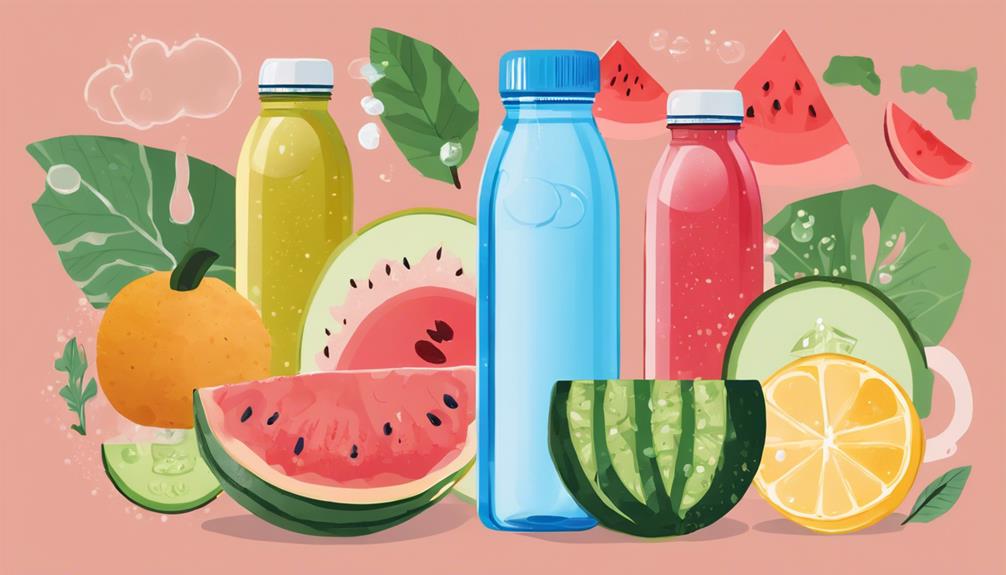How to Build a Balanced Diet for Women: A Complete Guide
When it comes to crafting a balanced diet tailored for women, it's like piecing together a complex puzzle where each nutrient plays a crucial role. But before you dive into the specifics, have you ever considered how the timing of your meals could impact your overall health and well-being? Balancing your plate with the right mix of nutrients is just the beginning of the journey towards optimal nutrition for women.
Understanding Women's Nutritional Needs
When it comes to understanding women's nutritional needs, it's essential to recognize that women have unique requirements that differ from men. Hormonal balance plays a crucial role in women's health, affecting everything from energy levels to mood regulation. Women experience hormonal fluctuations throughout their menstrual cycle, pregnancy, and menopause, making it vital to support hormonal balance through proper nutrition.
Metabolism efficiency is another key factor in women's nutritional needs. Women generally have a slower metabolism than men, which means they may require fewer calories but still need to ensure they're getting enough nutrients for overall health and vitality. Choosing nutrient-dense foods can help support metabolism efficiency and provide the necessary energy for daily activities.
Key Nutrients for Women's Health
To maintain optimal health, women require a variety of key nutrients that play essential roles in supporting their overall well-being. Two crucial aspects for women's health are hormonal balance and bone health. Ensuring an adequate intake of specific nutrients can contribute significantly to these areas.
| Nutrient | Role |
|---|---|
| Calcium | Essential for strong bones and teeth |
| Vitamin D | Aids in calcium absorption for bone health |
| Magnesium | Supports bone density and hormonal balance |
| Omega-3 fatty acids | Help reduce inflammation and support hormonal balance |
Calcium is vital for bone health, while Vitamin D assists in its absorption. Magnesium plays a role in maintaining bone density and hormonal balance. Omega-3 fatty acids aid in reducing inflammation and promoting hormonal equilibrium. By incorporating these nutrients into your diet, you can support your hormonal balance and bone health, laying a strong foundation for overall well-being.
Planning Balanced Meals
Building a balanced diet is key to ensuring you receive the necessary nutrients for optimal health. When planning your meals, two essential factors to consider are portion control and meal timing.
Portion control involves being mindful of the amount of food you eat to maintain a healthy weight and prevent overeating. Aim to fill half your plate with vegetables, a quarter with lean protein, and the remaining quarter with whole grains or starchy vegetables.
Meal timing is equally important. Try to eat every 3-4 hours to keep your energy levels stable and avoid extreme hunger, which can lead to poor food choices. Start your day with a nutritious breakfast, have a balanced lunch, and opt for a light dinner. Snack on fruits, nuts, or yogurt between meals to keep your metabolism steady.
Making Smart Food Choices
For a balanced diet that supports your overall health and well-being, making smart food choices is crucial. When it comes to maintaining a healthy diet, portion control plays a significant role. Be mindful of serving sizes and listen to your body's hunger cues to avoid overeating. Opt for nutrient-dense foods like fruits, vegetables, whole grains, lean proteins, and healthy fats.
Mindful eating involves being present while you eat, savoring each bite, and paying attention to your body's signals of fullness. Avoid distractions like screens or eating on the go, as they can lead to mindless overeating.
Take the time to enjoy your meals, chew slowly, and appreciate the flavors and textures of your food.
Importance of Hydration
Maintaining a balanced diet involves more than just food choices. Hydration plays a crucial role in overall health and well-being. Adequate water consumption is essential for various bodily functions, impacting everything from digestion to temperature regulation. Here are a few key points to remember about the importance of hydration:
- Water Consumption: Your body is made up of about 60% water, emphasizing the need to stay hydrated throughout the day.
- Electrolyte Balance: Electrolytes like sodium, potassium, and magnesium are crucial for maintaining proper fluid balance and supporting nerve and muscle function.
- Hydration and Energy Levels: Dehydration can lead to feelings of fatigue and decreased cognitive function, highlighting the importance of staying hydrated to maintain optimal energy levels.
Remember to listen to your body's signals for thirst and aim to drink at least 8-10 cups of water daily to support your overall health and well-being.
Supplements for Women's Diet
To optimize your nutritional intake and address potential gaps in your diet, incorporating supplements can be a beneficial addition to support women's health. Two key supplements that are often recommended for women are Vitamin D and Omega-3 fatty acids.
Vitamin D is crucial for bone health, immune function, and mood regulation. Since many people, especially women, may have insufficient sun exposure for natural Vitamin D production, supplements can help meet daily requirements.
Omega-3 fatty acids are essential for heart health, brain function, and reducing inflammation in the body. Including sources like fish oil supplements can ensure an adequate intake of these beneficial fats, which may be lacking in a typical diet.
Before starting any new supplement, it's advisable to consult with a healthcare provider to determine the right dosage based on your individual needs. By incorporating these supplements thoughtfully, you can enhance your overall well-being and support your body's unique requirements.
Frequently Asked Questions
Can I Still Enjoy Desserts and Snacks While Following a Balanced Diet?
Yes, you can still enjoy desserts and snacks while following a balanced diet. Incorporate healthy indulgences like fruit sorbets or dark chocolate, and opt for smart snacking with nuts, yogurt, or veggie sticks to satisfy cravings while supporting your health goals.
How Can I Manage Cravings for Unhealthy Foods on a Balanced Diet?
To manage cravings for unhealthy foods on a balanced diet, try mindful eating. Listen to your body's signals and opt for healthy swaps like fruit instead of sugary snacks. Stay hydrated, plan balanced meals, and indulge in moderation.
Is It Okay to Skip Meals if I'm Not Hungry While Following a Balanced Diet?
Skipping meals when not hungry disrupts your body's natural rhythm. Listen to hunger cues and practice mindful eating. Opt for smaller, frequent meals to maintain balanced energy levels and prevent overeating later.
Can I Drink Alcohol in Moderation as Part of a Balanced Diet?
You may wonder about alcohol in moderation. It can fit into a balanced diet, but be mindful of portions. Opt for healthier dessert or snack options instead. Remember, balance is key for overall wellness.
How Can I Maintain a Social Life While Sticking to a Balanced Diet?
To maintain a social life while sticking to a balanced diet, opt for dining out at places with healthier options. Choose grilled over fried, swap sugary cocktails for wine spritzers, and indulge mindfully. Socializing can still be fun and nutritious!
Conclusion
In conclusion, remember that building a balanced diet for women is crucial for overall health and well-being. Did you know that only 12% of American women meet the daily recommendations for fruit and vegetable intake? By incorporating nutrient-rich foods, staying hydrated, and making smart food choices, you can support your hormonal balance, bone health, and energy levels. Start small, make gradual changes, and prioritize your health one meal at a time. Your body will thank you!












